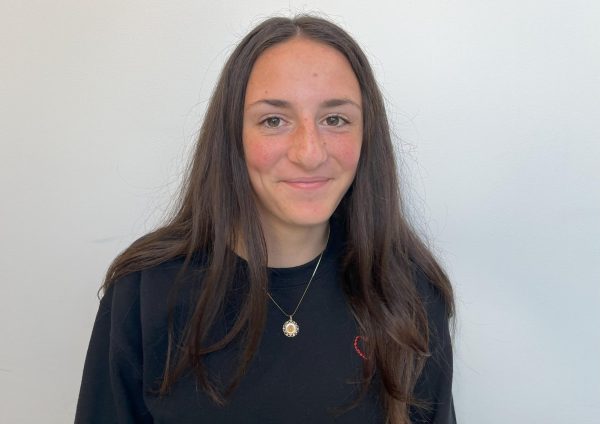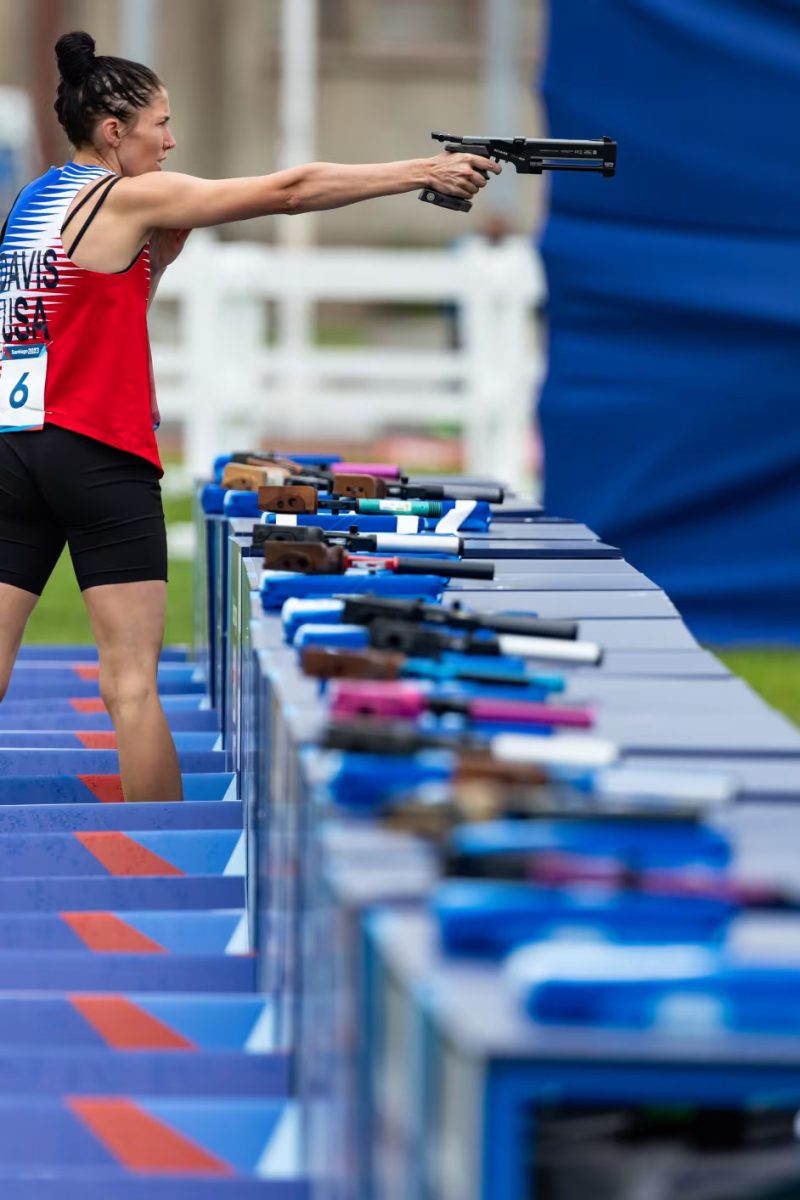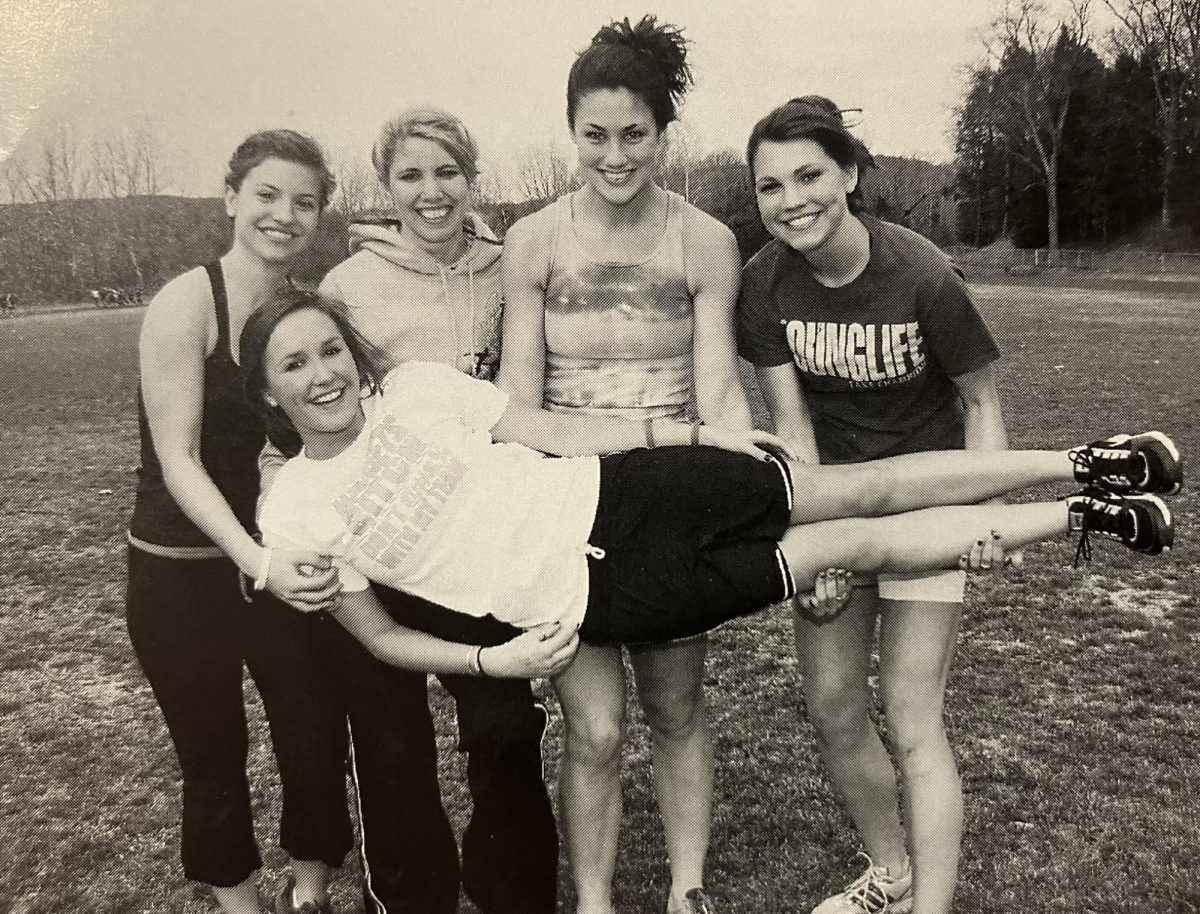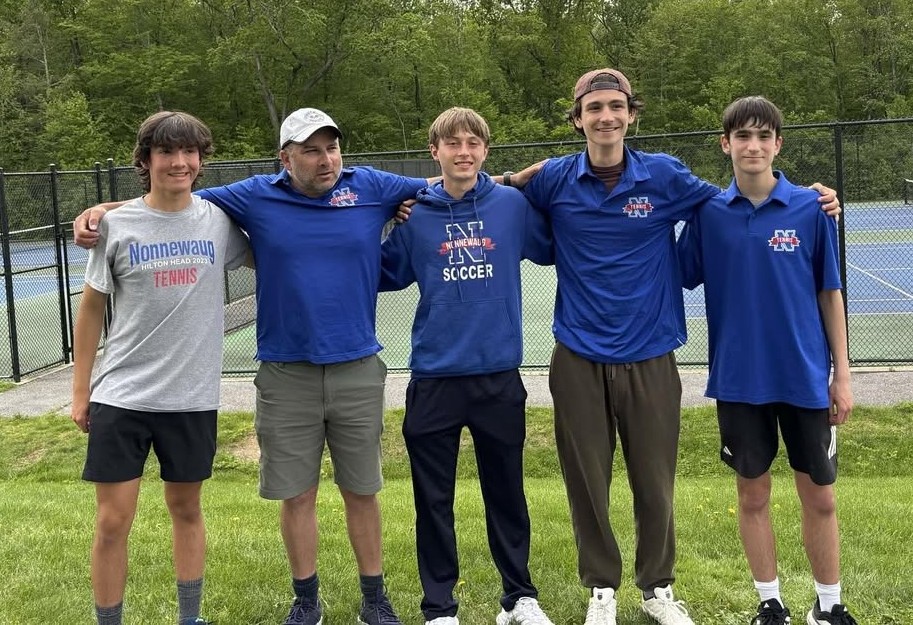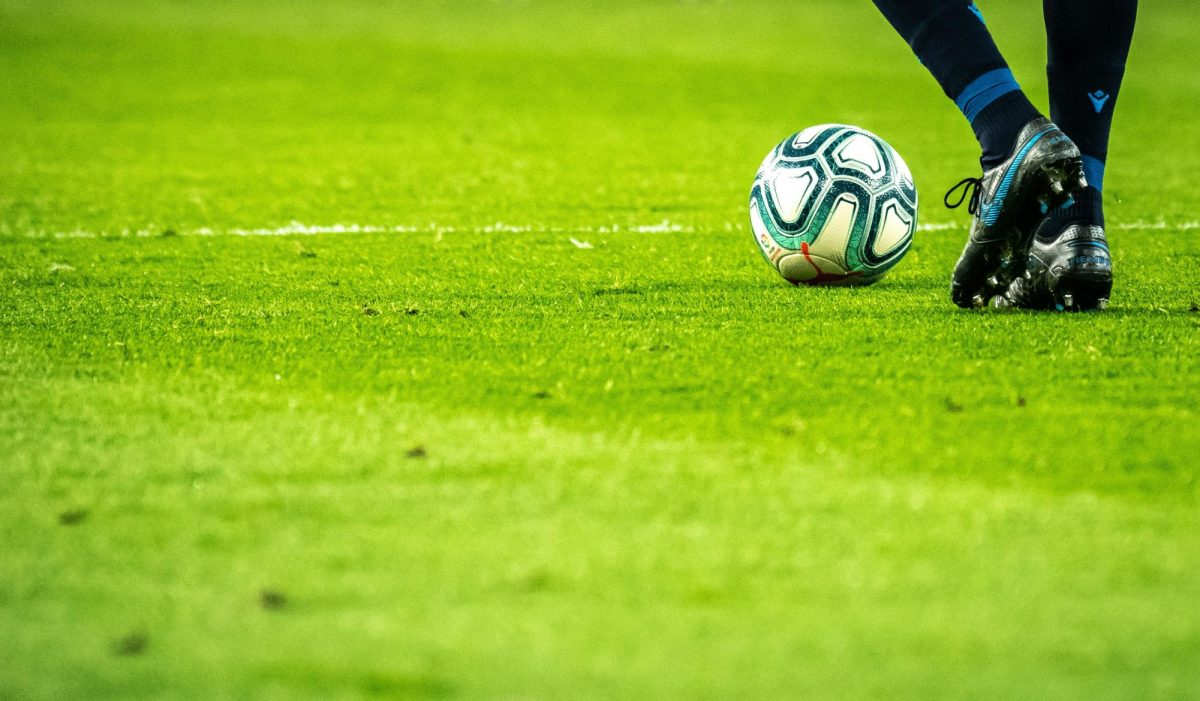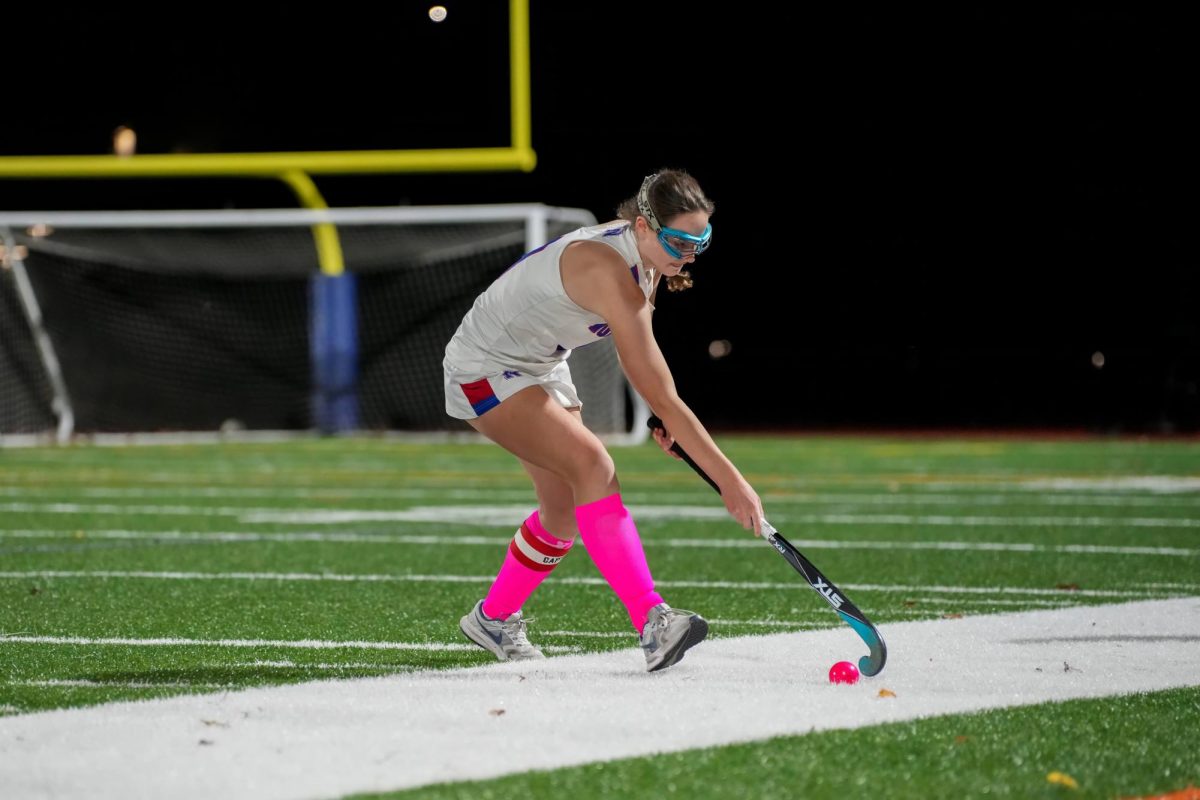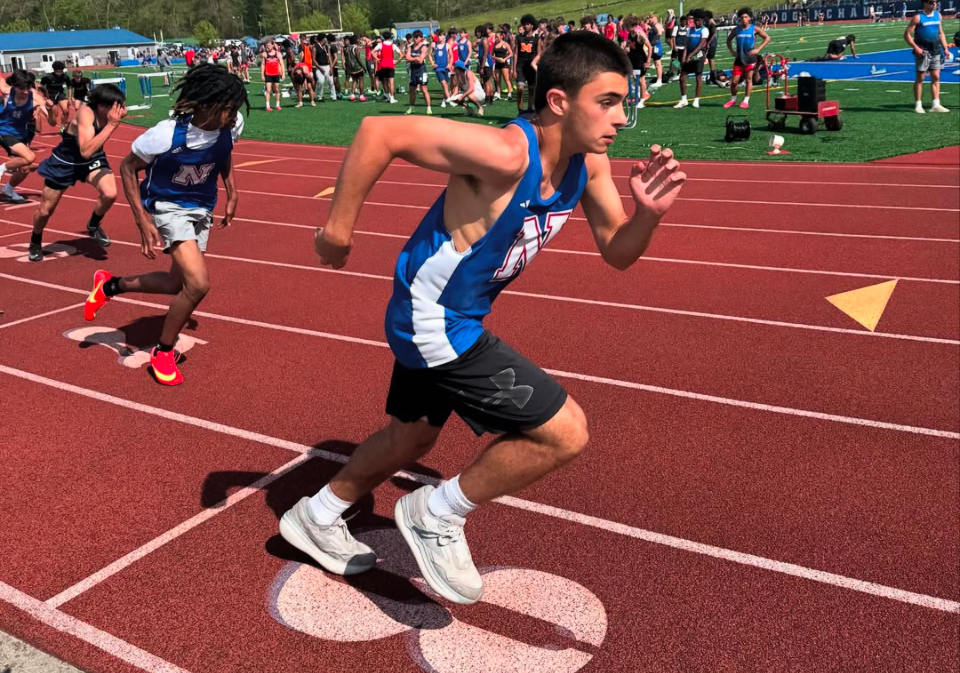Nonnewaug Alum Jess Davis Qualifies for 2024 Olympics
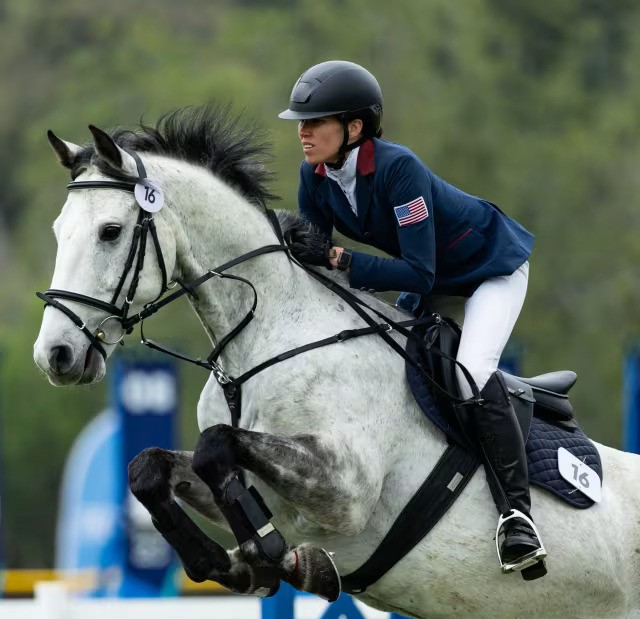
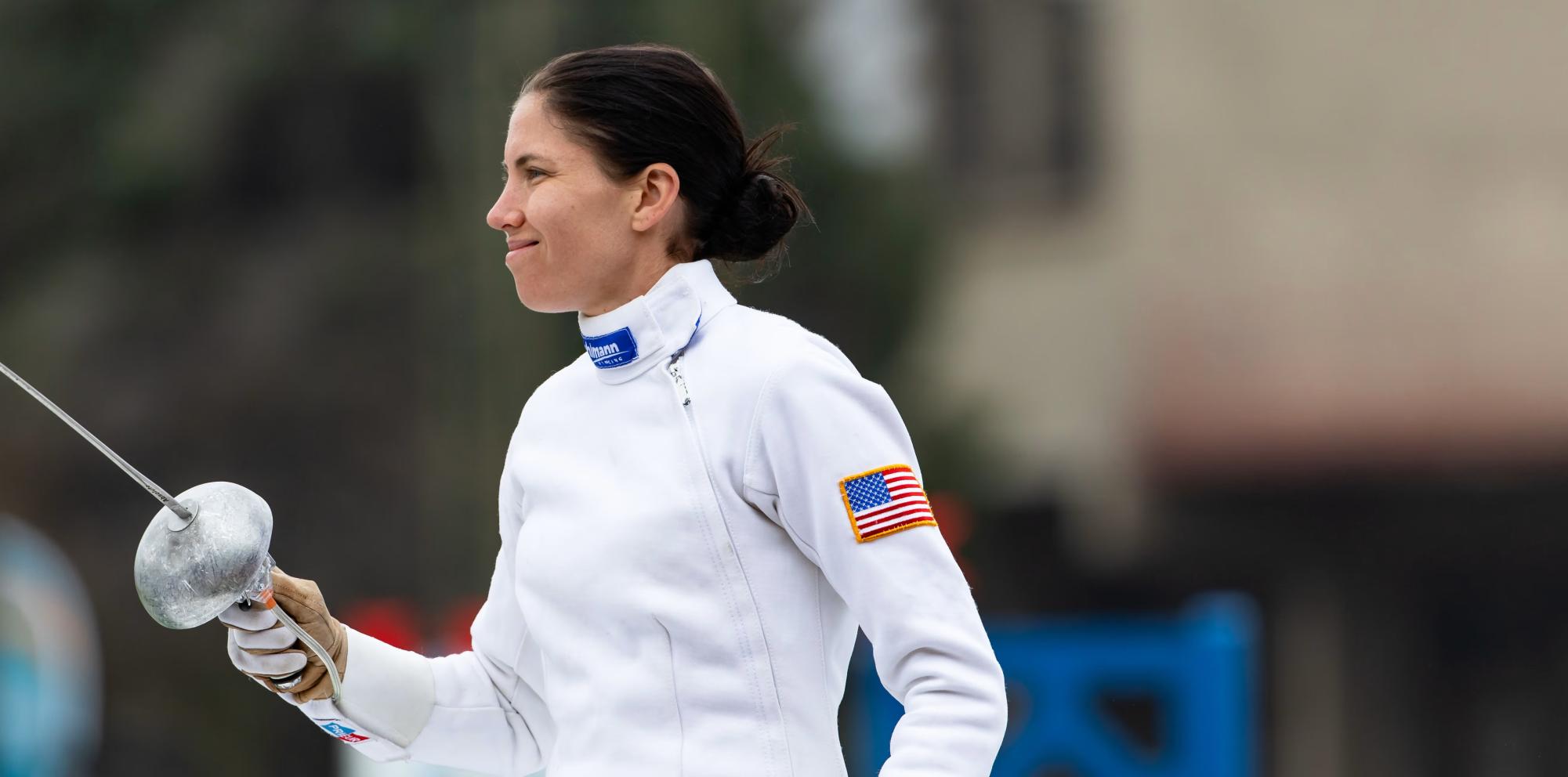
When it comes to athletics, there are few bigger achievements than qualifying for the Olympic Games. The ancient tradition has long held a reputation for being a celebration of the world’s finest competitors, representing every corner of the globe.
One athlete who has already qualified to compete in Paris next summer comes from a familiar place: She is a graduate of Nonnewaug High School. The event she does? Not as familiar, but equally exciting.
Jess Davis, who graduated from Nonnewaug in 2010, is currently the sole qualifier for Team USA in a sport called the modern pentathlon – an event combining horseback riding, fencing, swimming, running, and laser shooting, all in a 90-minute timeframe.
Davis placed fourth in the event at the 2023 Pan American Games, hosted in Santiago, Chile. This finish secured her the final available Olympic spot available for athletes from North and Central America – an achievement that didn’t initially sink in for Davis.
“It’s funny because if you ask anybody who really goes the distance with it and tries to go to the national level and Team USA, it kind of just happens,” Davis said of her journey towards her Olympic qualification. “It’s almost like you’re in it too deep, and all of a sudden you wake up one day and you’re like, ‘Oh my God, this is, like, actually happening!’”
Davis returned to her alma mater to explain the relatively obscure modern pentathlon, what training for the Olympics looks like, and the story of how she has gotten to this point in her life.
The combination of sports which make up the modern pentathlon aren’t exactly related unless you put them in a historical context. Davis said that the event was created “to test the ultimate athlete” and “to test what a soldier would have to do if dropped beyond enemy lines.”
“At the time [in the 1910s], those skills were riding a horse, using a sword, using a gun, running, and swimming,” Davis said. “It’s changed over time to kind of modernize. Now, we use laser pistols where we used to use air pistols. We’ve condensed the running and shooting to be even faster, and the fencing is one-touch.”
Davis’ strongest event of the five is fencing, even though it is the last event that she learned how to do.
“I actually also won a fencing national championship last year, which was really cool,” Davis said. “I love the fencing.”
On the opposite end of the spectrum, swimming is the event that gives Davis “a constant headache.”
“I have to fight really hard to be a little bit above average as a swimmer,” she confessed. “I work really hard, and I’ve improved a lot, but it’s a struggle.”
Whereas most athletes at her level of competition have one sport to focus on, the modern pentathlon forces Davis to adapt her mentality for the five different sports at any given time.
As she puts it, a typical day may consist of having to “wake up in the morning and be a swimmer,” and then having to “turn around an hour later and be a runner, and then turn around an hour later and be a fencer.” On the day of competition, those things have to be put together in a 90-minute format with limited rest.
That can be an intimidating arrangement, and potentially a pain-inducing one. Yet, that is what makes the event so special for Davis.
“It’s a really hard thing to do even more emotionally than physically,” she says. “You’re so emotional and your anxiety is so high the whole day that being able to keep yourself level is really important. Some of our [modern pentathlon] athletes in the world swim times that Olympic swimmers do, and run times that Olympic runners run, and it’s amazing that they can do that while doing five sports competitively. It’s really special what these athletes can accomplish.”
The uncertainty of competition day only makes the mental aspect of the modern pentathlon even more crucial. Davis explains that with each competition, “it’s really one of those sports where whoever has had the best day [will win].”
“The athletes are all incredible, and I’ve had really good days, but I’ve also had a lot of really hard ones,” she explained. “It’s a steady climb; it’s just over the years, and every year climbing the rankings a little bit higher and higher.”
As things stand right now, the slow-but-steady climb has put Davis in an admirable position in the modern pentathlon’s global rankings.
“Now, I probably stack up in the top 30 in the world pretty well,” she said. “Where I fall in that 30 depends on what kind of day it’s been.”
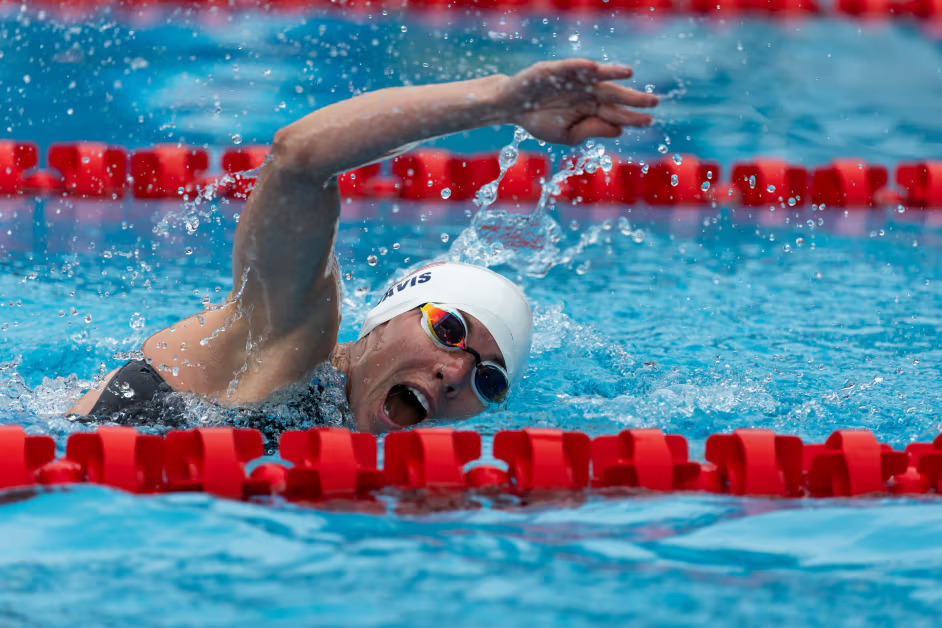
What does training for the Olympics entail? It’s different for every athlete, but training for five separate events gets complicated.
Davis explains that the biggest difference between her Olympic training and her regular-season regimens of the past is a change in mentality, specifically regarding injury prevention.
“It’s a lot of mitigating injury and health once you qualify,” she said. “Your mindset changes about your training because the biggest thing that can knock people out of the Olympics is their injuries and health.”
Other than a renewed hyper-awareness of her health, being an Olympic qualifier takes a weight off of Davis’ shoulders for the upcoming Modern Pentathlon World Cup Series.
“Now things are cool because I get to train for the Olympics and not the World Cup season,” she explained. “I still have to compete, but I can now practice with the mindset of preparing for the Olympic Games, not stressing about the World Cups.”
With the modern pentathlon being much more popular in Europe than the U.S., many European countries often have more athletes worthy of qualification than can be admitted to the Olympics.
As Davis describes, qualifying in these areas “becomes a big fight all season.”
Luckily, this works to her advantage.
“You take a country like Great Britain – they’ve got a very good team, with four girls who will make the top 10 [in the World Cup Series],” Davis said. “Only two of those girls get to go [to the Olympics], and I usually have to compete against four of them.”
With fewer competitors than normal comes increased mobility through the rankings for the athletes. Davis says that there is ample opportunity to set high goals going into the Olympics, including hopefully placing among the top three for fencing.
“I’d like to win the fence, that would be my goal,” Davis said. “It’s just that I now have to make small goals within the big goal, but I’d love to win the fence or at least make the top three.”
The type of focus required in training for the Olympics is much different than the careers that occupy most people’s lives. Yet Davis emphasizes that the way people look at Olympic training is “the same way that I can look at somebody who works a 9 to 5 and go, ‘How on Earth do you do that?’”
“There’s a lot of days where I wake up the same way anybody else does, and I go, ‘I would rather do anything in the world than put sneakers on right now and go for a run,’” she stressed. “We’re not motivated every single day; no one is. It’s a lot of, just, habit. It’s just learning how to wake up in the morning, whether you want to or not, and get it done, even if it’s bad.”
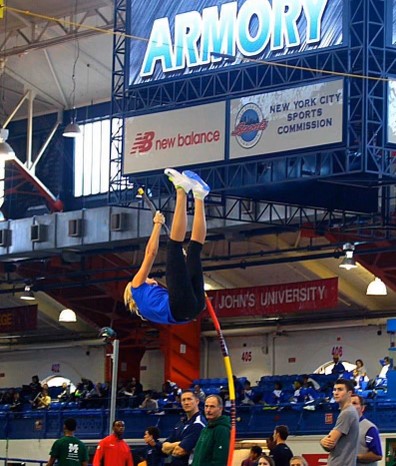
How Davis got to this point of being an Olympic qualifier is, in her own words, “absolutely a fever dream.”
But the story has simple roots in Davis’ not-so-distant childhood hometown of Bethlehem, Connecticut, where her parents helped spark within her a love of horseback riding.
“Both my parents were athletes. My mom [Laura] was an equestrian and my dad [Brad] was a triathlete,” she said. “I kind of picked the horse route, so I did a lot of competitive riding.”
Once she became a student at Nonnewaug High School, Davis gravitated to the school’s successful track and field team – as she puts it, she was “very bad at anything with a ball” and “couldn’t swim,” so track appeared to be the natural choice. (At that time, Nonnewaug didn’t have a swim team anyways.)
As juggling horseback riding and a newfound love of track became difficult, Davis chose to narrow in on track, specializing in pole vault.
“I was a super late bloomer. I was not a great track athlete until probably my junior and senior year [at Nonnewaug],” Davis said.
Yet by her upperclassman years, she had improved enough to be at the level of competition many high school athletes set their eyes on: Division I collegiate sports.
Davis chose Central Connecticut State University as her team for the next four years, setting their current indoor and outdoor school records in the women’s pole vault. When it came to the next chapter of her life, though, she had some choices to make.
Davis knew that she wanted to continue with professional sports but knew that it wouldn’t be as a pole vaulter.
“I wasn’t a good enough pole vaulter to really make a run for the Olympics in pole vault,” Davis said. “So I went to triathlons; I was like, ‘Oh, this is something I could do for the rest of my life, it’s a fun sport, let’s see how good we can do with it.’”
A successful run as a triathlete followed. Not long after she began with triathlons, Davis was “picked up by a woman in the area who went to the Olympics in [fencing].” That woman was 1996 Olympic fencer Suzie Paxton, and it was she who first introduced Davis to the modern pentathlon, according to the U.S. Olympic Committee.
“She told me about this sport, and I thought she was crazy,” Davis said. “Then she got me to the [New York] Athletic Club, and I had to learn how to fence, and that was in August of that year. By January, I was leaving for a World Cup for pentathlon.”
As she began competing and steadily progressing through the world rankings, Davis set her sights on qualifying for the 2020 Tokyo Olympics. When that didn’t work out due to the interruption of the COVID-19 outbreak, Davis “was very bummed out.”
“It was just kind of this very, quietly not-paid-attention-to Olympics,” Davis reflected. “I remember being so sad at the time, and now looking back on it, I’m so excited to be a part of this one and not that one. Everything works out.”
The 2024 Olympics in France will also be a historic Olympic Games for the modern pentathlon as it will be the last time a formative piece of the event is involved.
“This will be the last Olympics that the horses will be involved in. They’re taking the horses out after this one and replacing them with obstacle course racing,” Davis explained. “It’s a very historical event for the pentathlon because it’s our last time riding, and it’s in the country that the man who created it [Pierre de Coubertin] was born in. It’s a cool Olympics to be a part of.”
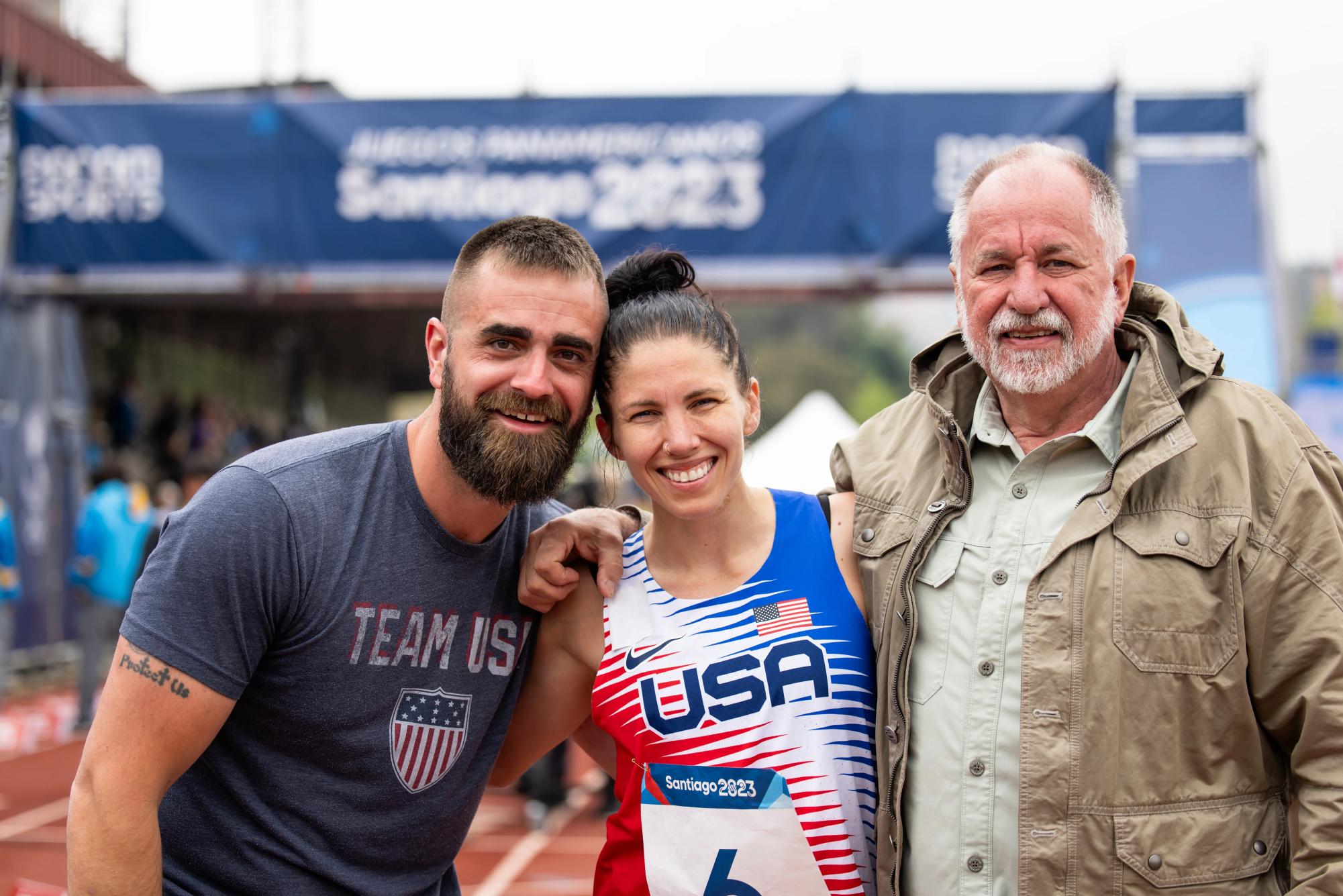
Success in the world of professional athletics takes a lot of hard work and dedication. The modern pentathlon is a prime example of the self-discipline required to compete at a high level, as it is such an individualized sport.
But Davis gives credit to her experience as a Nonnewaug athlete for encouraging the development of her work ethic, increasing the passion for sports which has steered the course of her life.
“I was always a person who, good or bad, I would be at practice and I would be there every day. That was always my thing. By my senior year it paid off, and I had this fantastic career,” Davis reminisced. “It taught me that even when you’re not the best, and you’re not feeling the best, if you just continue to show up, it will pay off in the long run.”
Longtime Nonnewaug track and cross country coach Arleigh Duff says that Davis’ dedication to the sport, combined with the team’s culture, helped put her in a position to succeed long after her time as a Chief came to a close.
“I think it helped her to be committed to something really important,” Duff said. “Even though she was a pole vaulter and a jumper, I think how disciplined you have to be to do those events and the work you have to put in carries over to what she does now. What she does now is 100% all her, but at [the high school] age, you are learning discipline and what you have to put in for work.”
Duff emphasized that Nonnewaug “had such a winning culture” that it boosted athletes’ confidence on many of his teams, but it also placed the highest importance on “learning the hard work and the dedication that has to go into things, the discipline.”
“I think students learning that in our program does help, because at that age, you’re still learning that stuff,” Duff added. “That stuff carries over for life; like I’ve always tried to teach, track and field parallels with life, and what you put in you get out of it.”
Nonnewaug High School athletic director Declan Curtin expressed pride in Davis’ accomplishments.
“We are a small, tight-knit community, so anytime anyone makes it on the national level, it’s noteworthy. When someone makes it on the international level, it’s legendary,” Curtin said. “To me, [Davis] gets put in that legendary category. She’s on the Mount Rushmore of Nonnewaug athletes. Anytime someone reaches Olympic status, we know the dedication, the hard work, the effort, the hours that go into that. We’re very proud that her foundational pieces were here, and that her formative experience that she had was a springboard for her future success.”
Despite how groundbreaking having a former Chief as an Olympic qualifier may be to those in the Nonnewaug community, Davis approaches her qualification with humility.
“I tell people all the time how I deal with serious imposter syndrome, because I was not good when I started,” Davis said. “I was not good at this sport, and now all of a sudden, it’s ten years later and I’m the person that I remember being scared of when I first started, and these girls are all acting like I’m special. I’m looking at them like, ‘No, I’m just as psyched out as you guys are all the time!’”
While Davis might not see herself as special, Curtin sees her as more than that: the pride of a small town.
“We as an athletic community and as a town that supports athletics, should be very proud of Jess Davis,” Curtin said, “and should be cheering for the red, white, and blue come the Olympics this summer.”
